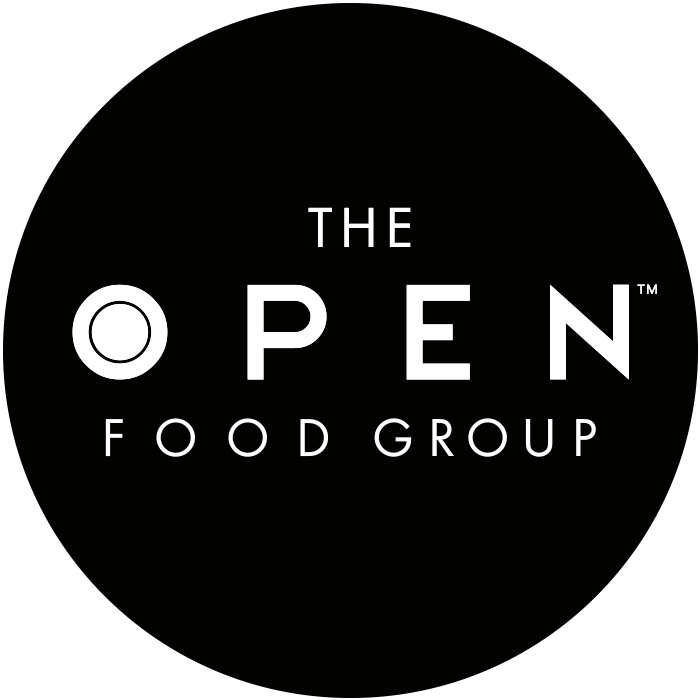Keeping its options open
By Matthew Staff
Johannesburg has been the base camp for OPEN Food’s expansion and diversification over the past decade, laying the groundwork for the catering and event management company’s growing international ambitions.
OPEN Food is exploring new horizons, new sectors and new territories as it stays true to an entrepreneurial ethos which continues to keep the catering specialist ahead of the industry curve and market competition year after year.
Founded in 1999, initially as a small catering company in Johannesburg tailored towards private events, the diversification and expansion of the group that has occurred ever since has been indicative of an ethos to never rest on its laurels and a commitment to ensuring the very best customisable offering to each and every client.
At present, the service variety now comprises – on top of its original catering activities – a recently introduced retail arm and a to-order production division that incorporates everything from ready-to-bake muffins to bespoke production for luxury lounges in the aviation sector.
Finance Director, Richard Friend, recalls, “In 2006 when I joined the company, OPEN Food had a change in direction in what we wanted to achieve moving forward with regards to their style of catering. We began doing more production work and taking on bigger contracts, as well as opening up into retail since then, but whatever we tried to go into, OPEN Food always made it unique and its own.”
Whenever a new canteen was opened, OPEN Food ensured that it was an exciting new addition to the market, offering a competitively priced meal, but in a style incomparable to older, traditional canteen concepts in Johannesburg.
“Everything that OPEN Food has tried to do has revolved around creating nuances and customising every new contract for that particular client,” Friend continues. “Across the divisions, OPEN Food offers something very unique and each month we look to see how we can push contract sites forward, in order to make them new, fresh and exciting and to ensure we never rest on our laurels.”
Business growth
At the core of OPEN Food’s philosophy is an unwavering commitment to client satisfaction; a facet which many companies struggle to retain as they grow. The business has managed to buck this trend, however, in ensuring that, despite being a prominent and large market player, it still operates as a small enterprise.
“As much as our turnover has increased, we still run with the same ethos that was there when the company began,” Friend explains. “The employee numbers have increased and our operations have expanded but we still treat and every client as if they are our only client.”
“The food and service will always speak for itself, but in a market like this, it’s about going that bit further and seeing how else we can help with a client’s contract so that they want to come back for more.”
“We know where we came from and we know how we got to where we are now; by treating our clients like they were our only client.”
To achieve this positive word of mouth across divisions, it is vital for the business to find a balance between not being pigeonholed into one sector above another, but to also ensure it has a reputation that bridges each division.
Aiding this drive is a concerted and ongoing approach to capital expenditure, ensuring OPEN Food stays ahead of the industry curve and up-to-date with the very latest internal procedures and technologies.
Friend says, “As we grow, the business needs to grow, taking into account our structures and facilities. As a result we have invested R1.8 million into a new internal system and are in the process of introducing a new facility for R12.5 million to cater for the latest in food safety trends and production requirements.”
Consistent quality
In terms of acquiring new business and adding even further strings to the OPEN Food bow, the company has already earmarked between two and four big new contracts a year, as well as an additional three retail outlets being opened up this year to complement its first foray into the domain.
To facilitate such a proactive and dynamic approach to attaining new contracts, though, requires a solid and consistent internal process across personnel and the supply chain.
Regarding the latter, Friend notes, “We employ someone in head office specifically to handle procurement, making sure that we don’t just move something off or on the menu. Instead we find new ways to cook and new ways to use different aspects of the menus.”
This integrated approach continues across the Group having worked alongside the majority of key business partners throughout its own rise to industry prominence; purchases with some suppliers rising as much as 1000 percent over the past seven years in some cases.
“It’s all about the consistency of quality; and the moment you chop and change suppliers, is the moment that consistency and quality starts to suffer,” Friend emphasises. “The same goes for our employment strategy where we look to promote from within and raise people up the ranks, ensuring they’re never doing just one thing the whole time and giving the skill sets to improve.”
Unique service
A stable core to operations has been the ideal platform for OPEN Food’s expansion over the years and will continue to be so as the company looks even further afield in the years to come.
With an international expansion plan on the business’s doorstep, the strategy will be able to find a balance between utilising local labour talent in each new region, yet leveraging existing partners, many of whom already enjoy a cross-border presence.
Additionally, the company is also in the planning stage of establishing a new kitchen solely tailored towards the production arm of the business, which Friend expects to really take off across the aviation and hospitality industries in the next two to three years.
“On the retail front, we have a goal of opening at least two new stores a year and getting into franchise opportunities, while from a catering perspective we want to separate the functions and events from our everyday catering activities to create bigger teams from each division,” adds Friend.
As the offering expands, so too will the geographic footprint, with neighbouring Southern African nations top of the agenda and Europe not beyond the realms of possibility further ahead, as a consequence of its influence on the airport scene.
“The concept of providing food and catering services for a number of business class lounges in Africa will be a new one for us, but we are always looking to provide new services to each client,” Friend concludes. “It’s all about sitting down with each owner and getting a sense of how we can do new things for their benefit. How we present a service to every client is unique and should never be copied, from our point of view.”


